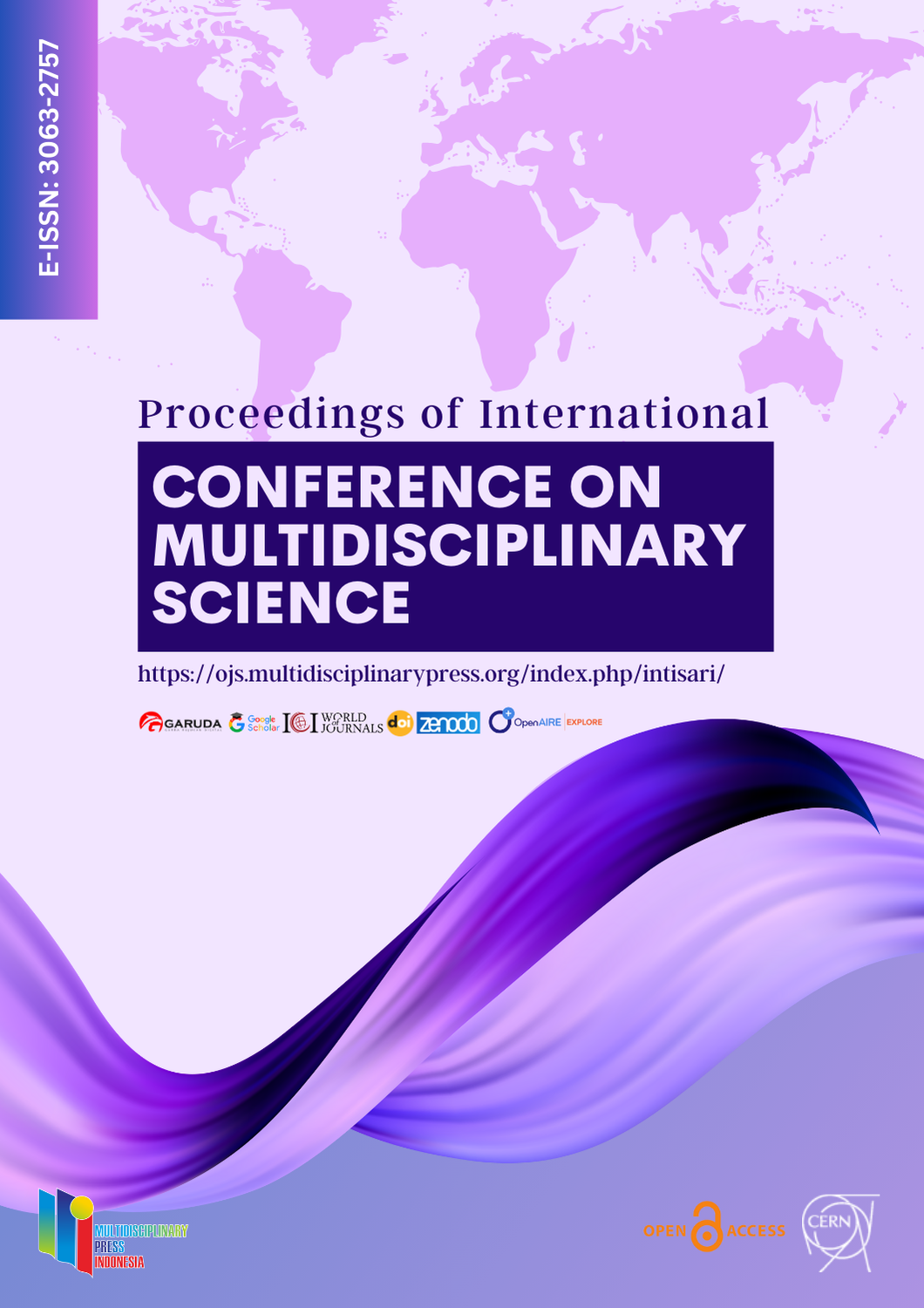Performance Optimization through Work Motivation
Keywords:
Organizational Culture, Organizational Climate, Work Motivation, Employee PerformanceAbstract
Today, a company's ability to successfully navigate the highly competitive advantage landscape depends solely on its ability to organize and manage its human resources effectively. Working with clear goals and organizational strategy linkages will result in human resource performance. So, performance is about what is done and how the work is done, as well as how the work is done and the results obtained from it. The results of this research are as follows; Organizational culture has a positive and insignificant effect on employee performance with the original sample of 0.054 and a p value of 0.293. Organizational culture has a positive and significant effect on work motivation with an original sample value of 0.606 and a p value of 0.000. Organizational climate has a positive and significant effect on employee performance with an original sample value of 0.137 and p-values of 0.039. Organizational climate has a positive and significant effect on work motivation with an original sample value of 0.222 and a p value of 0.003. Work Motivation has a positive and significant effect on Employee Performance with an original sample value of 0.779 and a p value of 0.000. Organizational culture has a positive and significant effect on employee performance through work motivation indirectly with an original sample value of 0.472 and a p value of 0.000. Organizational climate has a positive and significant effect on employee performance through work motivation indirectly with an original sample value of 0.173 and a p value of 0.003.
Downloads
References
Afandi. (2018). Manajemen Sumber Daya Manusia (Teori, Konsep dan Indikator). Nusa Media. Yogyakarta.
B. Uno Hamzah, D. (2018). Teori Motivasi & Pengukurannya. Jakarta: Bumi Aksara
Cohen, L., Manion, L., & Morrison, K. (2018). Research Methods in Education (8th ed.). London: Routledge.
Hair, J. F. et. al. (2017). A Primer on Partial Least Squares Structural Equation Modeling (PLS-SEM). SAGE Publications, Los Angeles.
Gardjito, A. H. (2014). Pengaruh Motivasi Kerja Dan Lingkungan Kerja Terhadap Kinerja Karyawan (Studi pada Karyawan Bagian Produksi PT. Karmand Mitra Andalan Surabaya). Jurnal administrasi bisnis, 13(1).
Ghozali, Imam, Hengky Latan. (2015). Konsep, Teknik, Aplikasi Menggunakan Smart PLS 3.0 Untuk Penelitian Empiris. BP Undip. SemarangHarnanto. 2017. Akuntansi Biaya: Sistem Biaya Historis. Yogyakarta: BPFE.
Maamari, Bassem E.Majdalani, Joelle F. (2017). Emotional Intelligence, Leadership Style and Organizational Climate. International Journal of Organizational Analysis, 25, 327-345.
Raja, S., Madhavi, C., & Sankar, S. (2019). Influence of Organizational Climate on Employee Performance in Manufacturing Industry. Suraj Punj Journal For Multidisciplinary Research, 9(3), 146–157. https://doi.org/16.10089.SPJMR.2018.V9I3.16.3243
Robbins, P. Stephen dan Mary, Coulter. (2015). Manajemen, diterjemahkan oleh Wilson, Bangun, Jakarta Selatan: Salemba Empat .
Sedarmayanti. (2017). Perencanaan dan Pengembangan SDM untuk Meningkatkan Kompetensi, Kinerja dan Produktivitas Kerja. PT Refika Aditama. Bandung.
Schein. (2016). Organizational Culture And Leadership (5, Illustr Ed.). John Wiley & Sons. Https://Doi.Org/10.1016/J.Sbspro.2011.12.156
Sugiyono, (2020). Metode Penelitian Kualitatif. Bandung: Alfabeta.
Wahjosumidjo, (2015) Manajemen Sumber Daya Manusia Berdasarkan Kompetensi, Pustaka Utama Grafiti, Jakarta
Downloads
Published
How to Cite
Issue
Section
Categories
License
Copyright (c) 2024 Muhammad Zailani Sinaga, Mesra B

This work is licensed under a Creative Commons Attribution 4.0 International License.





